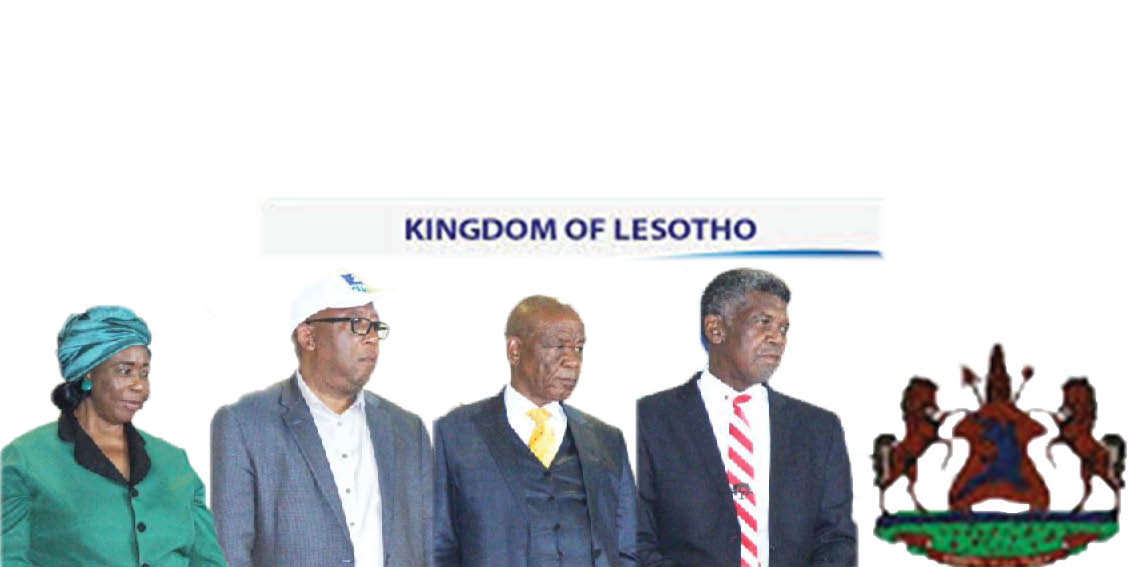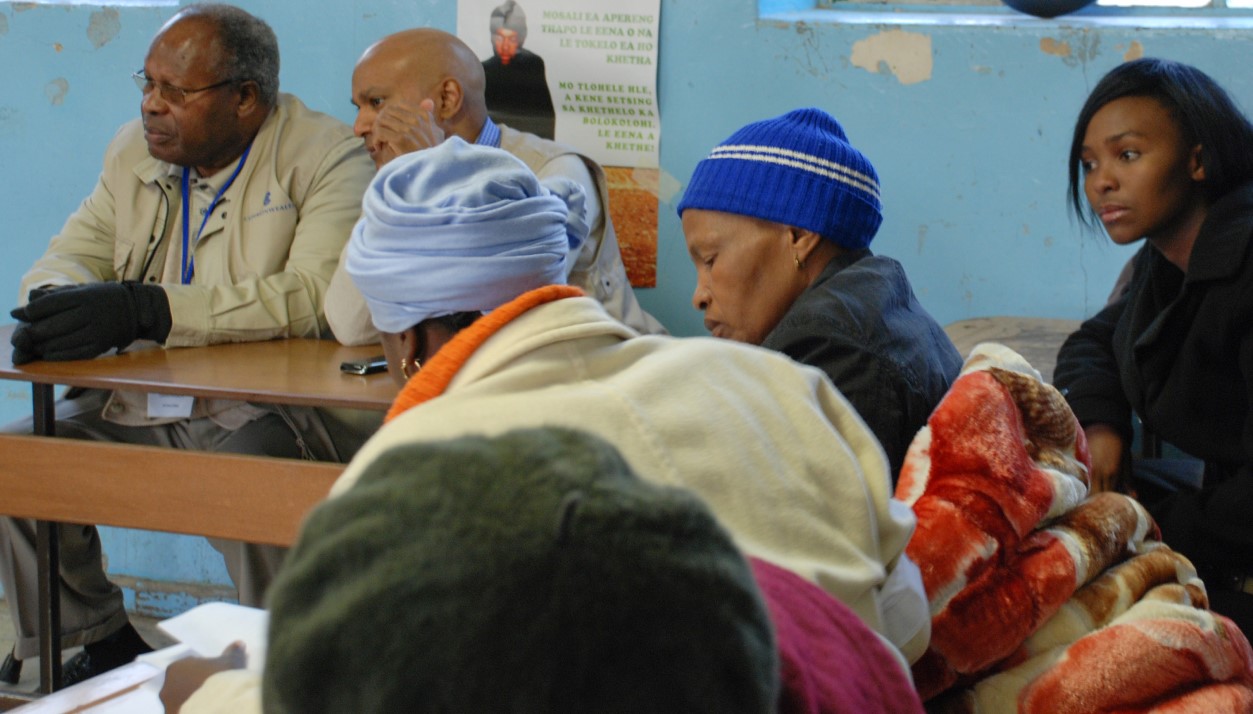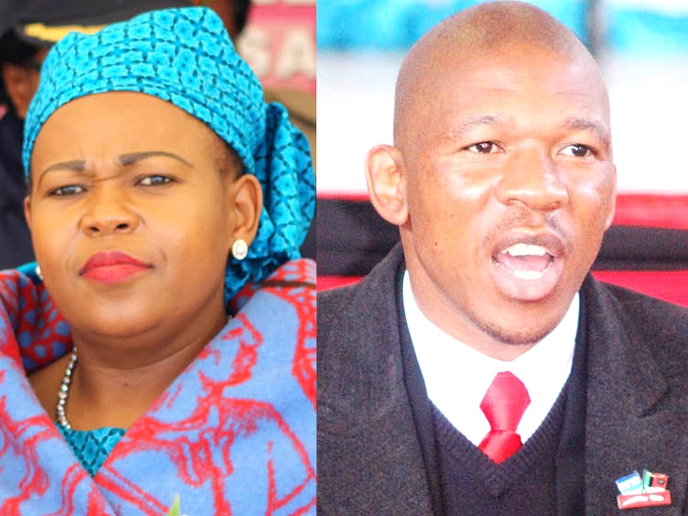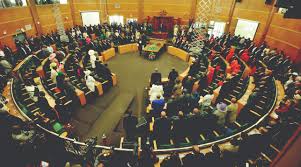Ills of cadre deployment in the civil service

Mr Mzimkhulu Sithetho
Managing Director of the Governance Institute for Sustainable Development and Editor-In-Chief of thizkingdom.com

The filling of the civil service with political cadres of ruling parties and turning the civil service into a dumping place for unprofessional and underqualified people has been a practice over the years. Previous governments have not taken strides to prevent this awful practice, until today that it has become a huge challenge. Politicians kept a blind eye to the practice because it politically benefitted them as it was used as bait to win elections. It has reached a stage where it is a bubble that has exploded due to the incapacity of the civil service to further absorb qualified people in the civil service. The government of Lesotho has been warned by international donors such as the International Monetary Fund (IMF) about a high wage bill, which is not paid through local means. The huge bill is forked out by international donors and financiers through budget support, who some of them are today refusing to advance to Lesotho.
The first regime after independence, which was led by the Basotho National Party (BNP) became infamous for employing Basotho into the civil service, diplomatic missions abroad and many other senior and lower positions based on political affiliation. This abhorrent practice has been loosely referred in vernacular to; 'ho hira ka liphephechana' (meaning employing based on political card-carrying). It was widely decried by the then oppositional side, Basutoland Congress Party (BCP) in that the BNP regime afforded employment to only its confidantes and loyalists to the exclusion of the larger Basotho nationals. Then, the BCP, standing on a high moral ground, criticized this practice as deplorable as it undermined Basotho's bonafide citizenship and relegated them into secondary citizens in their own country. The congress side widely campaigned against this phenomenon, during past elections before 1993. When the BCP won the 1993 parliamentary elections, they repeated the same mantra that the 15 years of BNP rule (1970-1985) and the six years of military rule (1986-1992) were years of total deprivation of another segment of the nation. This they said had deliberately created two nations in one country; a nation of nationalists and that of congressmen and women and others.
During the BNP-led regime of democratic rule (1965-1970) and one-party state and undemocratic government (1970-1995), Basotho were divided into two major groups, the nationalists and the congress men and women. The divisions became so obvious and deeply-entrenched that the social fabric of society became largely torn into two groups mentioned. This was not based on ideological underpinnings, but mere affiliation and an untested set of beliefs of each grouping. This has had a spillover effect into other segments of society such as the Christian Church, including marriage and choice of school to attend. There have been areas in the country where even choice of suitor was determined by whether it was wise to marry a man or woman whose parents are nationalists or congressmen or women. Also, parents tended to send their children to schools either of the Roman Catholic Church or the Lesotho Evangelical Church and these two dominant church denominations have a historical political leaning towards either of the nationalist and the congress respectively.
Therefore, BNP used three main strongholds of government to divide the nation and to offer employment, education and livelihood opportunities to one group at the expense of another. The three strongholds were the civil service, the diplomatic missions abroad and the army/police or national security service. For one to be employed in any of the three sectors, one had to be a card-carrying member of the BNP. For one to be assigned to represent Lesotho abroad where the country has a diplomatic mission, one must be a loyal member of the BNP. And for one to join the army, the police, national security service or the correctional services, one had to be a loyal and card-carrying member of the then ruling party. The then government was creating jobs through self-help projects in the villages; forestry and land reclamation and other community-based projects, all these based on loyalty to the ruling party.
Surprising, when the BCP became government in 1993, armed with ammunition to turn the tide in the new democratic dispensation, it disappointingly used the same tactics of its predecessor. As though waging a revenge, the regime afforded 'their own people' economic benefits that they were deprived during the BNP rule. Appearing as a revenge in the eyes of the opponent and the observer, the practice was based on the adage that 'molomo oa ketlele o sa shebile ka ho rona' (the spout of a kettle is facing our direction). This translated to imply that opportunities are now in the favour of the congress side and the wisdom was that they should exploit them as much as they could. This evil practice got deeply-engrained in the minds of Basotho that for one to earn a living in Lesotho, one has to be affiliated to the ruling party/parties in one way or the other. Other areas that were used to sideline other citizens against others was appointment into key positions such as permanent secretary-ship and directorship of government ministries. There is a deliberate no mention of ministerial positions because for these positions, it is given that any government in the world that appoints cadres to this position, it is purely on political affiliation, not on merit.
Ideally, deployment into the permanent secretaryship, directorship and diplomatic missions abroad should be based on merit because these require technical and technocratic skills and expertise. No political party can have qualified candidates for all government positions. After all, Basotho are citizens of this country and by virtue of this, they deserve to work and feed families. It makes no logical sense to exclude a citizen of a country based on party affiliation as it does not build the nation, but creates bitterness and perpetuates existing social divisions among Basotho. It is divisive and creates pockets of hatred and vengefulness among citizens.
The practice has created a wrong conception that affiliation into political parties is for attainment of economic benefits when one's political party is in power. The APRM Report (2010) underscores three types of conflicts that have afflicted the Basotho nation since independence and one of them is a social conflict. This type of conflict is engineered by bitterness of one segment of the nation against another as a result of deliberate deprivation to economic opportunities.
The vile of cadre deployment has been deeply-entrenched such that even minor jobs such as cleaning, tea/coffee-making in government offices and driving is based on party affiliation. Members of Parliament (MPs) draw their constituency members to join the public service, diplomatic missions, security sectors including the key sectors based on party affiliation. The practice has become so nasty that those who are already in the job, who joined during the tenure of one regime get expelled when their regime is voted out of office during an election.
The nasty practice has created bitterness and to some extent, has ended in the courts of law when office bearers sought the intervention of the law when their employment contracts were unceremoniously ended. The awful practice of cadre deployment has also reared its head into the private sector, which is viewed as a platform for pure meritorious recruitment. Appointment into governing boards of parastatals of government and of some private entities is now decided on the basis of political affiliation. The deplorable practice is rooted in the thirst to grant opportunity to members of ruling parties at the expense of other parties' members as thought they are foreign nationals in their own country.
In the advent of frequent change of government that Lesotho has become infamous for in the last five years since coalition governments became a norm, the adverse implications of the practice have become outrageous. Whenever there is a possible change of government, those on the other side start panicking that they may lose their positions and go into the cold and it has indeed happened as people have been recalled from diplomatic missions abroad when their parties lost political power.
Effects of cadre deployment on the quality of civil service
The civil service is a critical area in that service that has to be offered to Basotho; passport production, police service, justice administration, postal services, immigration and others have to be professional, efficient and cost-effective. People recruited in the civil service and by right, by the Public Service Commission (PSC) have to be of high calibre, who are able to provide quality service based on their educational levels. But in an instance where recruitment is not based on merit, but on political affiliation as it is the case, quality of service delivery is largely compromised because control and management of the people who joined civil service in this manner become difficult. Politically-appointed civil servants are said to be rude, inefficient and adding no value to the development of Lesotho because they do not display a deportment expected of a civil servant. Diplomats, soldiers or policemen or women, a cleaners or drivers become political confidantes who pay allegiance to some people not others.
Most Read
Reforms, Elections and Democratic Stability in Lesotho

Organizations and companies go through a rough patch

The cooling of the political temperatures came with the BAP joining the bandwagon after a season of political agitation and chess games, reflecting political anomalies in the system of political governance of Lesotho:

Related Stories
Partisan politics, a gateway to security of job opportunities

Opinion Vote Polls
Do you think the existing government is going in the right direction to benefit the people of the country?
Subscribe for your daily newsletters
Enter your email to subscribe to our newsletter.

